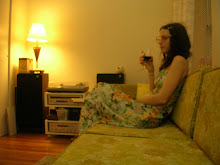there are two main breaks during the school year for students: one week in October for National Day, and a month in January/February for the Chinese New Year. Next week is our first vacation. I'm excited; we're going to Harbin, the northernmost large city in China. It's a 8-15 hour train journey depending on the speed of the train you book. I think of Beijing as northern China, but part of it really stretches up a lot farther in the east, sandwiched on either side by Russia. Harbin is predominantly a Chinese city, but it is also heavily influenced by Russia. Russia and China seem culturally worlds apart in my mind, so i was interested in going to this area to see what russian china is like.
So ordinarily we would be off for 9 days beginning tomorrow, but in true chinese fashion, the government decided that would be just a little too much free time for students, so now all the students and teachers have to go to school on saturday instead, and in many cases, sunday too. (we don't have to work sunday).
We live very close to a high school. An apartment building and restaurant block our view of the school, but we can hear a lot that goes on. We hear morning music while the rows upon rows of students stand outside and do group exercise--something students do at every school every morning across china--and occasionally we've woken up to a loud megaphone-projected voice echoing off the walls of the surrounding buildings barking some sort of commands. Rather than a bell to signal the end and beginning of classes, the school blares this "happy" melody that sounds like something playing from a mobile you would hang over a baby's crib. The melody periodically continues long into the evening until 9 p.m. or so when the last students are finally free for the day. Then of course they go home and do homework and get up and do it all over again. this was something i found really surprising the last time I was in China--how hard students are pushed to excel in school. Besides the regular school week and the loads of homework they were expected to complete each night and weekend, they were also enrolled in extra math, english, music, etc. classes on the weekends. High school students are under the most pressure. Basically, with so many people in China, only the very top students are able to go to university--a very small percentage. So parents (who are allowed only one child, and receive little social security from the government) have to place all their hopes and expectations on their only child to do exceptionally well in school, go on to university, get a good job, and be financially able to support the parents after they retire. And this begins at age five, when parents who can afford it send their child to a private school, enroll them in english classes, etc.
 my newfound favorite drink: little earthenware pots of yogurt are sold all over. aaron and i sat here in a neighborhood alley drinking yogurt and coke from a glass bottle. you drink it at the place so you can return the pot/bottle.
my newfound favorite drink: little earthenware pots of yogurt are sold all over. aaron and i sat here in a neighborhood alley drinking yogurt and coke from a glass bottle. you drink it at the place so you can return the pot/bottle.  view of the street as it was getting dark. these are the old streets or hutongs for which beijing is famous. Many of them were leveled in preparation for the olympics to make room for modern highrises, offices, hotels, etc.
view of the street as it was getting dark. these are the old streets or hutongs for which beijing is famous. Many of them were leveled in preparation for the olympics to make room for modern highrises, offices, hotels, etc.  evening sunset in a smoggy sky. an elderly couple walks through Tian an men square.
evening sunset in a smoggy sky. an elderly couple walks through Tian an men square. An old man playing a three-stringed traditional chinese instrument in the subway.
An old man playing a three-stringed traditional chinese instrument in the subway.
 A friend and i walking through Tian an men square.
A friend and i walking through Tian an men square. Aaron and our friend Rebecca
Aaron and our friend Rebecca part of one of the hundreds of pages aaron has filled practicing writing chinese characters.
part of one of the hundreds of pages aaron has filled practicing writing chinese characters. A good example of chinglish; aaron bought this shirt at a market.
A good example of chinglish; aaron bought this shirt at a market.
















